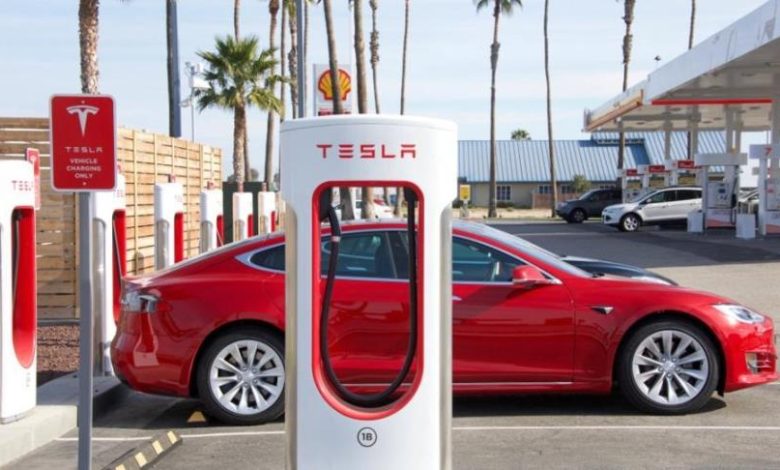Tesla’s Electric Vehicle Battery Technology: Beyond Lithium-ion

Tesla’s Electric Vehicle Battery Technology: Beyond Lithium-ion
Introduction
As the world’s leading electric vehicle (EV) manufacturer, Tesla has been at the forefront of battery technology innovation. While most EVs rely on lithium-ion batteries, Tesla has been investing in research and development to go beyond this traditional technology. In this blog post, we will explore Tesla’s advancements in electric vehicle battery technology and how it goes beyond lithium-ion.
Lithium-ion Batteries and Their Limitations
Lithium-ion (Li-ion) batteries have been the go-to choice for electric vehicles due to their high energy density, long cycle life, and low self-discharge rate. However, they do have limitations. Firstly, lithium-ion batteries rely on rare and expensive materials like cobalt, which could potentially lead to supply chain issues and increased costs. Additionally, Li-ion batteries can suffer from performance degradation over time, reducing their overall lifespan and capacity.
Tesla’s Battery Breakthrough: The Powerwall
Tesla’s breakthrough in EV battery technology can be seen in their Powerwall, a home battery system designed for storing energy generated from solar panels or the grid. The Powerwall utilizes lithium iron phosphate (LiFePO4) batteries instead of traditional lithium-ion cells. These LiFePO4 batteries offer improved thermal stability, increased lifespan, and enhanced safety compared to their lithium-ion counterparts.
FAQs about Tesla’s Battery Technology
Q: Will Tesla transition to using LiFePO4 batteries in their vehicles?
Yes, Tesla has plans to transition from lithium-ion to lithium iron phosphate batteries in their vehicles. This will provide several advantages, including improved battery lifespan, enhanced safety, and reduced reliance on rare and expensive materials.
Q: How will Tesla’s battery technology advancements impact EV charging time?
Tesla’s advancements in battery technology also aim to reduce charging time. By improving the energy density of the batteries, Tesla can achieve faster charging without compromising the overall battery life.
Q: Will Tesla’s battery technology advancements make EVs more affordable?
While Tesla’s advancements in battery technology may help reduce costs in the long run, it’s important to note that the initial investment in EVs, including their batteries, is still relatively high compared to traditional combustion engine vehicles. However, as technology advances and economies of scale improve, the cost of EVs is likely to decrease.
The Future of Electric Vehicle Battery Technology
Tesla’s commitment to pushing the boundaries of battery technology will undoubtedly shape the future of electric vehicles. Beyond lithium-ion, Tesla is exploring alternative energy storage solutions like solid-state batteries and advanced chemistry. These advancements hold the potential to revolutionize the electric vehicle industry, making EVs more accessible and sustainable for everyone.
Conclusion
Tesla’s dedication to advancing electric vehicle battery technology beyond lithium-ion is paving the way for a more sustainable and efficient future. By investing in innovative solutions like the Powerwall and exploring alternative battery chemistries, Tesla is leading the pack in creating a cleaner transportation ecosystem. The future of electric vehicles is bright, thanks to companies like Tesla that continue to push the limits and drive innovation.
Remember to regularly check the official Tesla website for the latest updates on their battery technology advancements and new product releases.
We would love to hear your thoughts on Tesla’s electric vehicle battery technology in the comments below!



